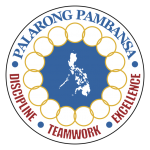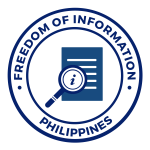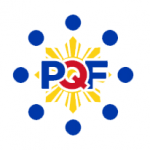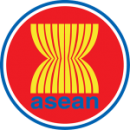Framework for Professional Development
- Human Resource Development (HRD) Results Framework
- NEAP Professional Development Framework
- NEAP Core Programs
- Induction Programs
- Career Progression Programs
- Regular Programs
- building and consolidating teachers’ and school leaders’ competencies to perform their expected functions at their current career stages;
- supporting teachers’ and school leaders’ promotion by developing their knowledge, skills, and attitude against the career stages of the relevant professional standards; and
- supporting assessment of teachers’ and school leaders’ competencies linked to their professional learning needs identified through the analysis of RPMS and their respective professional standards.
- supporting elementary, JHS, and SHS teachers in improving their content knowledge and pedagogical content knowledge that are consistent with the findings of the assessment and other relevant studies;
- supporting school leaders, such as EPSs and PSDSs, in conducting appropriate, effective, and efficient instructional supervision of relevant subject areas; and
- linking content knowledge and pedagogical content knowledge through, for example, formative assessment, and assessment in general, to provide baseline information for teachers and school leaders.
- Subject Content Programs Supporting Quality Teaching
- Master Classes
- Special Programs
Induction programs prepare a newly hired or newly promoted DepEd teacher or school leader to become effective and efficient in performing his or her functions as full-fledged DepEd personnel. Moreover, induction programs consolidate and harness entry-level competencies in preparation for career progression.
Induction programs run for three years for teachers and one year for school leaders. An assessment is administered at the end of the program to gauge the level of readiness of the DepEd personnel for his or her new role.
An induction program is a prerequisite for any of the courses for each job group.
Career Progression Programs are professional development programs for teachers and school leaders to improve their professional practice and support their promotion by gaining developmentally gradated knowledge, skills, and attitude anchored on the Philippine Professional Standards of each job group. These are composed of Regular programs, Subject Content Programs Supporting Quality Teaching, and Master Classes and are taken after completing the Induction Programs.
Regular programs are aimed at elevating professional practice of teachers and school leaders in order to meet the indicators of higher career stages (i.e., Beginning to Proficient, Proficient to Highly Proficient, Highly Proficient to Distinguished).
These programs are focused on:
Regular programs cover one or more PPST indicators that are non-subject specific. As such, these programs are open for all DepEd personnel. These programs discuss fundamental topics every DepEd personnel under a specific job group should know.
Different forms of assessments shall be employed to diagnose knowledge and practice, monitor progress, and quantify or qualify learning and application.
Subject content programs supporting quality teaching are priorities of the Curriculum and Teaching strand are focused on improving teachers’ and school leaders’ understanding, skills, and capacity to teach or conduct appropriate instructional supervision of relevant subject areas.
These programs are aimed at:
Subject content programs supporting quality teaching cover one or more PPST indicators that are subject specific or a combination of subject- and non-subject specific. These programs emphasize the development of content and pedagogical content knowledge. As such, subject content programs are offered only to participants who teach the discipline that the program covers
Different forms of assessments shall be employed to diagnose knowledge and practice, monitor progress, and quantify or qualify learning and application.
Master classes cover topics that develop competencies inherent to the participants’ professional standards but are beyond their expertise (e.g., Use of ICT – PPST Domain 1.3, Financial Management – Domain 2.2, Coaching and Mentoring the Mentors (Support for instructional leadership) – Domain 3.1). This shall be taken after the first nine (9) subjects, or 18 units combined regular and subject content programs.
These are delivered by expert practitioners of the discipline (i.e., ICT practitioner, financial management expert, coaches and mentors), applied and participatory in approach, and should be offered to small groups to maximize impact on teacher and school leader quality.
For teachers, master classes may be delivered through the Learning Action Cell and In-Service Training (INSET). The program shall last for a maximum of five days and should be attended by not more than ten participants.
While different forms of assessments shall be employed to diagnose knowledge and practice, monitor progress, and quantify or qualify learning and application, one final output or performance shall be the main exit assessment for master classes.
While different forms of assessments shall be employed to diagnose knowledge and practice, monitor progress, and quantify or qualify learning and application, one final output or performance shall be the main exit assessment for master classes
Special Programs are trainings that cover supplementary competencies that support teachers and school leaders in the delivery of emerging and non-pedagogical-related tasks (e.g., for teachers - evaluation of learners’ BMI, for school leaders - assessors training).
Different forms of assessments shall be employed to diagnose knowledge and practice, monitor progress, and quantify or qualify learning and application.







